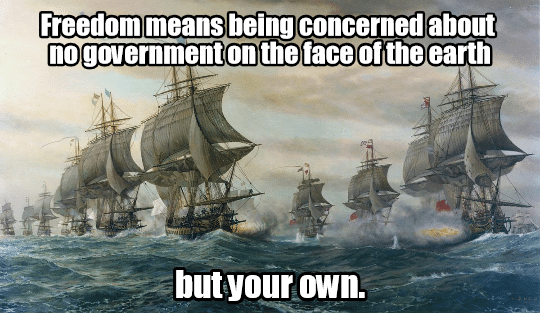Introduction: The fire that devastated Notre Dame cathedral in Paris burned for twelve hours, but the fire wasn’t even out before some people started being stupid about it. Most of the world was simply in shock as they watched one of the most magnificent buildings in the world go up in flames. But there were …
A Primer on the Fourth of July
What is celebrated on the Fourth of July? Two things. The formal reason for our celebration is the establishment of our nation in the Declaration of Independence, coupled with the successful completion of the war, coupled in turn with the adoption of our Constitution, which secured that independence. The second reason has to do with …
The American and French Revolutions Compared
Introduction: So I would like to discuss the radical difference between the American and French revolutions, and would like to do so with the aid of Friedrich von Gentz (1764-1832). He was a German writer, thinker, publicist, and man of public affairs. He wrote a short little booklet comparing the two revolutions, and it was …
7 Theses on Historical Loyalties
Grounded loyalty is an inescapable part of historical studies, and attempts at academic detachment are simply attempts that reveal misplaced loyalty to a guild of historians (say) instead of to (say) your nation. What I want to do here is offer seven theses that might help us approach this most helpful truth from various angles. 1. …
Covenant Evangelism
From Antithesis (Vol. II, No. 3) May/June 1991 To put it mildly, American Christianity is regrettably permeated with an individualism that stands in stark contrast to the biblical teaching of covenantal Christianity. But even Christians who believe in and emphasize covenantal thinking are still influenced by this individualism; they often exhibit a marked tendency to …
History as Crowd Control
I just finished reading Herbert Butterfield’s small book The Whig Interpretation of History. I had heard or seen it referred to from time to time, and so thought I needed to get with the program. Butterfield is a superb writer, and has a very solid grasp of his subject, and the whole book was an …
Religion of Force
“Clearly Islam is a religion of force which denies basic freedom. It may not be politically correct to say so, but pretending that the Quran is a pacifist document and that Islam has a consistent track record of peace and tolerance is either foolish or deceitful” (Peter Hammond, Slavery, Terrorism & Islam, p. 46).
Brief Polytheism
“Muhammad also compromised with the Meccan merchants during a particularly intense time of persecution. Formerly he had fearlessly condemned polytheism. Then, under pressure, he accepted the Meccan belief that Allah had a wife, Al-lat, and two daughters, Al Uzzo and Manat (Surah 53:20-23). Later Muhammad repudiated these so called Satanic verses and claimed that all …
Dar-al-Harb
“Muslims in fact divide the world into two sectors: Dar-al-Islam (the House of Islam) and Dar-al-Harb (The House of War). The only countries considered to be at peace are those where Islamic law (the Sharia) is enforced. Islam does not recognize the right of any other religion or worldview to exist” (Peter Hammond, Slavery, Terrorism …
Let the Reparation Talks Begin!
“Professor Davis estimates that up to 1.25 million Europeans were enslaved by Muslim slave raiders between 1500 and 1800” (Peter Hammond, Slavery, Terrorism & Islam, p. 10).



